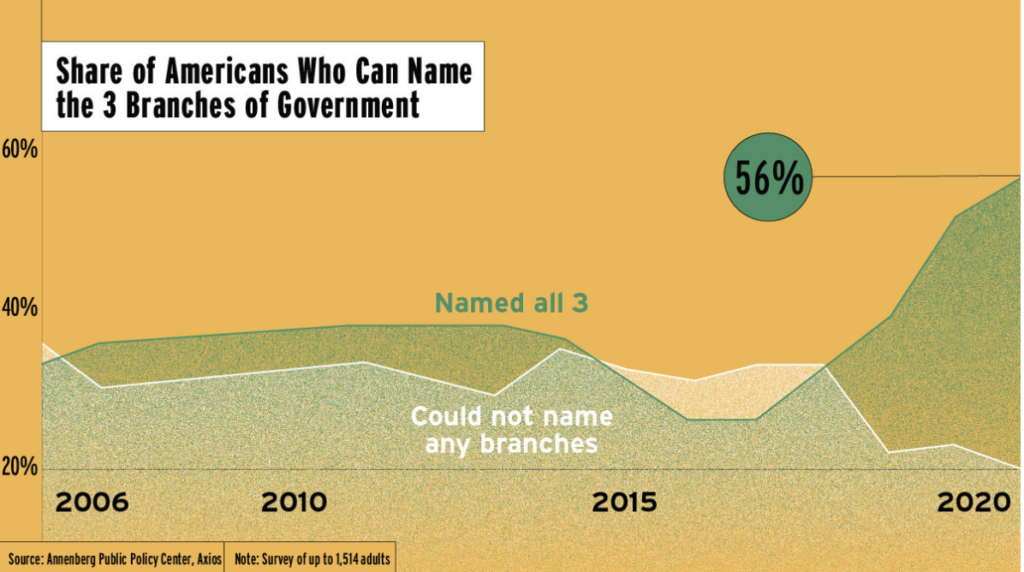Wine of the Day

I don’t know what those French vineyards are complaining about this year. Our vine is doing just fine.
Quote of the Day
In 2013, Lou Reed died. It was late October. The last thing he asked for was to be taken outside, into the light. Laurie Anderson, his wife, was by his side.
Afterwards, she wrote:
“I have never seen an expression as full of wonder as Lou’s as he died. His hands were doing the water-flowing 21-form of tai chi. His eyes were wide open. I was holding in my arms the person I loved the most in the world, and talking to him as he died. His heart stopped. He wasn’t afraid. I had gotten to walk with him to the end of the world. Life — so beautiful, painful and dazzling — does not get better than that. And death? I believe that the purpose of death is the release of love.”
- From a lovely profile of Anderson by Sam Anderson
Musical alternative to the morning’s radio news
James Galway & The Chieftains | Over the Sea to Skye
Link
Nice demonstration of how Paddy Moloney could attract classical musicians to work with the Chieftains.
Long Read of the Day
A Post-Neoliberal Regulatory Analysis for a Post-Neoliberal World
Terrific blog post from the Law and Political Economy Project.
It’s an insightful critique of cost-benefit’s roots in neoliberalism’s obsession with wealth maximisation.
Contemporary cost-benefit analysis is profoundly undemocratic. The complex technocratic techniques that define the methodology render it inaccessible to all but a rarified elite of highly trained economists (or those with the resources to hire them). Moreover, the anti-democratic nature of this process results in policies that do not align with the preferences of most citizens. While treating economic growth as the summum bonum of public policy may reflect value preferences within the field of economics, recent polling confirms that large majorities of voters across the political spectrum oppose using the goal of wealth maximization to guide regulatory decision-making. Instead, they are willing to forgo some economic growth to advance public interest policies like safer drinking water and effective action on climate change. Thus, contrary to defenders claims of moral neutrality, cost-benefit analysis simply substitutes the value judgments of economists for those of ordinary citizens.
Worth reading in full, and a useful antidote to the cringing acceptance of CBA as an ideologically neutral of assessing costs and benefits of public action.
Client-Side Scanning is not a silver bullet
Yesterday’s Observer column:
In August, Apple opened a chink in the industry’s armour, announcing that it would be adding new features to its iOS operating system that were designed to combat child sexual exploitation and the distribution of abuse imagery. The most controversial measure scans photos on an iPhone, compares them with a database of known child sexual abuse material (CSAM) and notifies Apple if a match is found. The technology is known as client-side scanning or CSS.
Powerful forces in government and the tech industry are now lobbying hard for CSS to become mandatory on all smartphones. Their argument is that instead of weakening encryption or providing law enforcement with backdoor keys, CSS would enable on-device analysis of data in the clear (ie before it becomes encrypted by an app such as WhatsApp or iMessage). If targeted information were detected, its existence and, potentially, its source would be revealed to the agencies; otherwise, little or no information would leave the client device.
CSS evangelists claim that it’s a win-win proposition: providing a solution to the encryption v public safety debate by offering privacy (unimpeded end-to-end encryption) and the ability to successfully investigate serious crime. What’s not to like?
Plenty, says an academic paper by some of the world’s leading computer security experts published last week…
Read on
Facebook’s fall from grace looks a lot like Ford’s
Good essay in Wired by Mar Hicks making the case that sometimes the history of regulating older industries has lessons for the present.
Haugen, who revealed internal documents showing that the company was aware of its products’ harms, said that she wishes to fix rather than destroy Facebook, but these are not the only two options. The third, regulation, is at its heart not about patching up broken, dangerous companies and their products but is about changing the social, political, and business landscape that allowed them to grow unchecked, operating as rapacious, destructive entities. It ensures not only that the present companies’ harms are stopped but also that new companies cannot take their place and continue the same destructive business models. As we approach peak Facebook news fatigue, it’s worth remembering that regulation of new technologies in this way has a strong historical precedent in the US. And this long lead up has almost always been part of it.
To understand how Facebook will likely land after its fall from grace we need to look at the striking similarities between earlier regulatory battles and what is going on now. Before there was Big Tech, there were the Big Three: Ford, Chrysler, and General Motors—and an infamous memo that cemented in the collective consciousness of the American public that strong regulation was a necessity, not a nicety. Though it may be difficult to see through the haze of history, there are important parallels between Big Tech today and the US auto industry in the mid-20th century, which also once seemed to be an unstoppable juggernaut.
The auto industry is indeed an instructive parallel. After campaigner Ralph Nader published Unsafe and Any Speed,
auto executives lined up before Congress. They told the American public and those who represented them that they were doing their best to make cars safer and less polluting and that there was little they could do to immediately undo the harms produced by their product. Executives downplayed the scale of the public safety crisis and often claimed to be unaware of the extent of their products’ harms to consumers. Their answers were, of course, largely a charade aimed at saving profits and staving off regulation for as long as possible.
Sound familiar?
But for years after that, Ford instead cut corners on safety, producing cars like the Ford Pinto that removed key safety features in order to get to market quickly and hold down manufacturing costs to reap maximum profit. In 1977, the infamous Ford Pinto “memo,” which was uncovered by Mother Jones investigative reporters, detailed the company’s horrifying cost analysis of past and future accidents. According to the memo, the gruesome deaths and full-body burns suffered by Pinto occupants in rear-end collisions amounted to an acceptable loss because, once lawsuits or other settlements were paid out, they would amount to less than the cost of fixing the Pinto design to prevent the gas tank from exploding. The cost of fixing the design was $11 per car.
For Facebook, paying Nick Clegg’s $2,7m salary, employing 40,000 moderators, being fined by the FTC, enduring horrendous publicity and having executives dragged before Congress are all just the costs of running such such an insanely profitable business model. And the company will continue to run it until it’s stopped by hard-nosed and realistic government action — as the automobile industry in the US was, eventually.
My Commonplace booklet
Eh? (See here)
From Private Eye:
The Billionaire boss of Amazon, Jeff Bezos, today launched a new venture that promises to revolutionise the way people shop.
“This is very exciting,” he told a roomful of sycophantic reporters. “I have come up with an idea for a new experimental retail space, where people conduct transactions, spending money on items in real time. I call it a Sales hub of Profits or a S.H.O.P.”
Mr Bezos is confident that hi so-called “shop” will catch on and soon there will be “shops’ everywhere, possibly in a row, in a design that he has called “the high street”.
“It may take a lot of getting used to by customers for customers, as it involves walking and some possible eye-contact with strangers, rather than staring at a computer screen and clicking a mouse.
“But I truly believe this disruptive revolution in retail technology may one day replace online shopping. My only worry is that some greedy online techno-nerd will come up with a way of putting my ‘shops’ out of business, leaving my ‘high streets’ empty and boarded up.”
This blog is also available as a daily newsletter. If you think this might suit you better why not sign up? One email a day, Monday through Friday, delivered to your inbox at 7am UK time. And it’s free!









